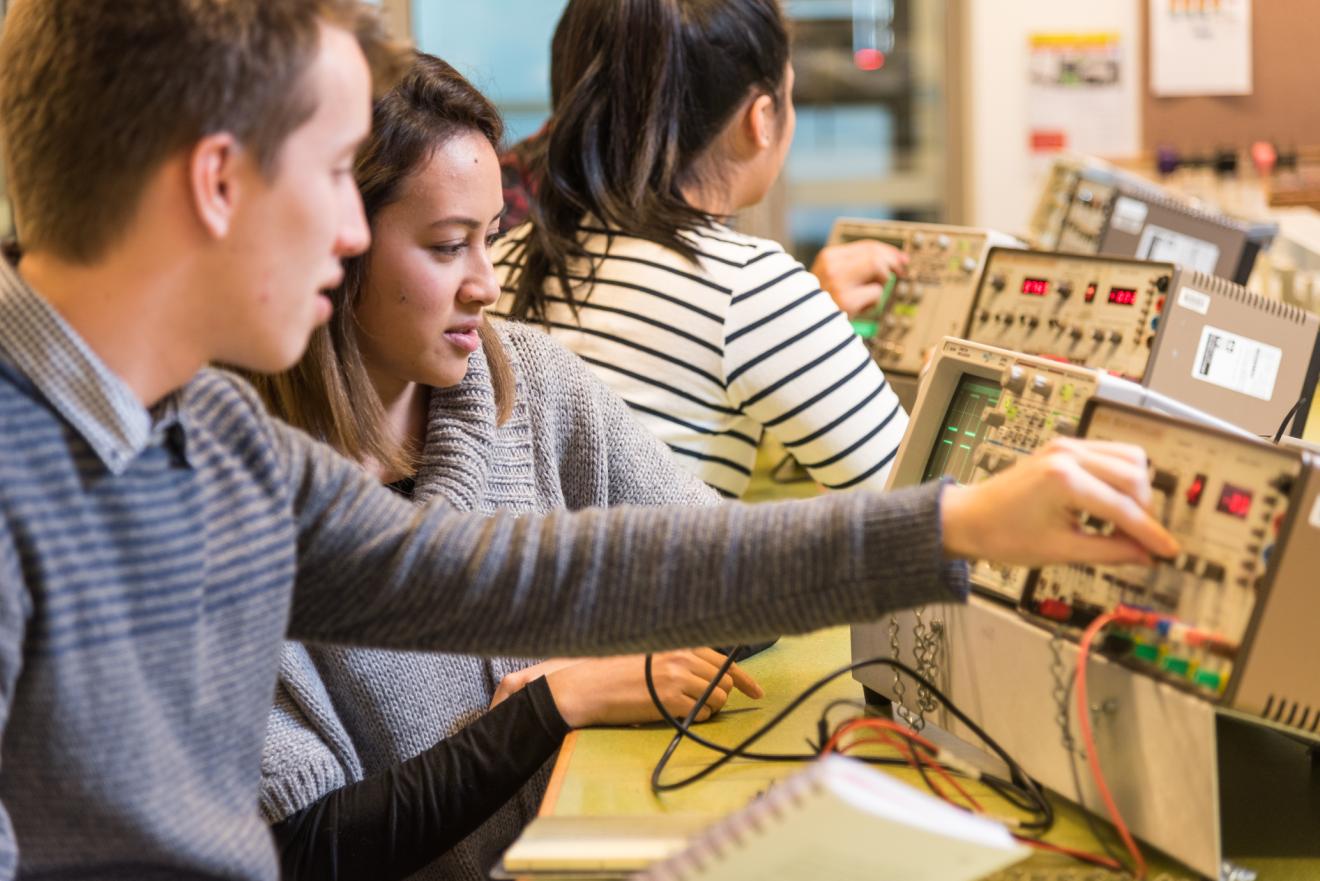
Keywords: clickers, participation, discussion.
Faculty: Science
Number of students enrolled (Autumn session): 540
Physical Modelling is a foundation subject offered to first-year undergraduate Engineering students. Topics include mechanics, thermal physics, electricity, fluids, waves, and optics, and are taught through interactive lectures. These topics are essential knowledge for all engineers, and this subject is offered in the first session of study. There were around 550 students in Autumn session of 2016.
What is happening?
Each session is divided into sequences of around 20 minutes. This helps the lecturer in managing the session by breaking it down into blocks, but it also helps students to focus on material for a specific period of time, before following up with what the lecturer calls 'wake up questions'.
Students answer these questions online using clickers and their results are then streamed live to the whole class, so that everyone can sees how the crowd behaves. The lecturer discusses the results with the class.
Why do we think this is successful?
Revealing student misconceptions
The learning design involves collecting feedback at multiple moments during the class and adapting the lesson accordingly. This is achievede mostly via the 'wake up questions'. Each question is designed to reveal a different misconception from the students, so that their answers can help the lecturer understand which concepts need to be explained further.
Mind teasers or 'wake up questions'
'Wake up questions' are thought provoking questions – for example, going against something that has just been taught – or bringing contradictory or challenging ideas to the students. Sometimes they can also be entertaining. The purpose of these questions is to invite students to give feedback and interact with the rest of the class.
Spontaneous conversations with classmates
Organising interaction in large classes can often be a challenge, due to the large number of people in the room and time required to allow the crowd to move around to form groups.
Throughout the session, these 'wake up questions' become moments of quick but productive interaction between students. To consider ways of answering the spontaneous questions posed by the lecturer, students turn to their closest peers to engage in discussion. This form of participation increases gradually throughout the session, as students talk, interact and get to know one another.
Getting to know your students
For the lecturer, it is extremely important to get to know the students in class: what they know, who they are. Every year the cohorts are different. In some years students will have minimal background in physics, or the number of international students in class might be higher, or any other number of variations. Using clickers, the lecturer collects information about students in the first few lessons. He then customises and adjusts parts of the learning design to suit the current cohort.
Photo credit: Chris Shain

